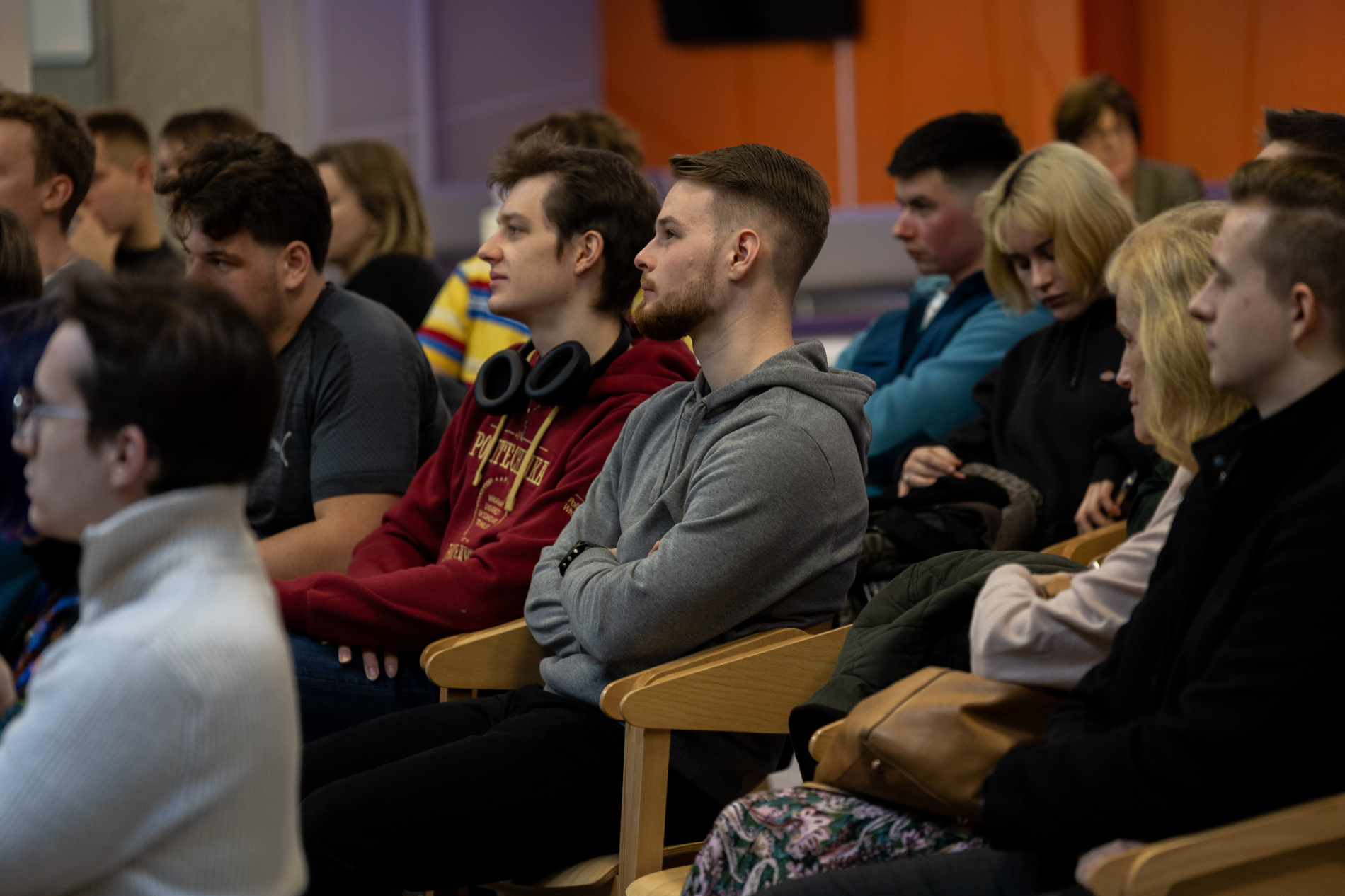
What does the music we listen to say about our personality? How can you choose something good to eat in Wrocław based on hundreds of thousands of restaurant reviews? Students of the Department of Artificial Intelligence investigated these questions and others using artificial intelligence in their research.
Artificial intelligence students carried out their projects throughout the semester as part of digital media analysis classes under the supervision of Prof. Tomasz Kajdanowicz from our Faculty. They prepared a total of eight analyses. All posters can be viewed here.

– The students could decide what issues they would like to investigate based on the available data, research procedures and their own interests. The topics were very diverse. Although the questions remain the same and concern human nature, technology develops and so do our tools. The works are of high academic value and can be investigated further at the PhD level, which is why we invite our graduates to pursue doctoral studies in the field of artificial intelligence – says Prof. Tomasz Kajdanowicz.
Music and personality
 Our students checked, among others, what the music we listen to says about our personality. For this purpose, they analysed half a million entries under songs by 30 artists on YouTube. The data concerned six music genres: metal, hip hop/rap, rock, pop, blues and classical music..
Our students checked, among others, what the music we listen to says about our personality. For this purpose, they analysed half a million entries under songs by 30 artists on YouTube. The data concerned six music genres: metal, hip hop/rap, rock, pop, blues and classical music..
– We analysed the comments in terms of the emotions they contained. Based on the results, we trained an AI model to see if we could tell something about the listeners based just on the opinion they left. It turned out that we can determine the personality of a given listener based on the genre – says Kacper Kozaczko, a student of artificial intelligence.
Research results show that people listening to metal are a group of energetic experimenters, blues lovers are a group of altruistic poets, and people listening to classical music are a group of logical thinkers.

– Artificial intelligence is the future. Its models are able to capture relationships that humans sometimes cannot understand and work with data that humans would not be able to analyse. However, artificial intelligence is not there to do our job, but to help us in various tasks that we want to further optimize – emphasizes Kacper Kozaczko.
 In another project, students examined the impact of a YouTube video's thumbnail on its popularity. For this purpose, they analysed data from over 500,000. videos, which consisted of static images and metadata. After filtering and matching, they received approximately 30,000 results for further analysis. Ultimately, it turned out that the appearance of specific elements in a thumbnail, e.g. of a dog, can have a positive impact on its popularity, unlike, for example, a book.
In another project, students examined the impact of a YouTube video's thumbnail on its popularity. For this purpose, they analysed data from over 500,000. videos, which consisted of static images and metadata. After filtering and matching, they received approximately 30,000 results for further analysis. Ultimately, it turned out that the appearance of specific elements in a thumbnail, e.g. of a dog, can have a positive impact on its popularity, unlike, for example, a book.
As part of the classes, the teams also prepared posters, which they used to present the purpose of their research, the employed methods and the results. They can be seen in the Student Culture Zone until mid-February, and then they will be moved to Technopolis.
The presentation of the projects was organised as part of Open D.ai:Open Day of Artificial Intelligence at the Faculty of Information and Communication Technology.

– It was great to see what opportunities the development of artificial intelligence opens to us. It was also a chance to have direct contact with lecturers and students, learn about the study program and see how practical skills acquired at Wrocław University of Science and Technology can contribute to real changes in the world of technology – says Prof. Tomasz Kajdanowicz.
The Open Day was also an occasion to present the field of artificial intelligence and its teaching staff. Students talked about other projects they implemented during their studies, and graduates talked about their experiences and career paths after graduation.